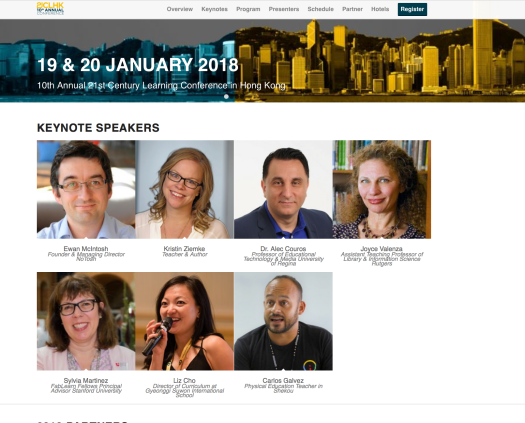
Next week I’ll be hosted by the FabLearn DK (also known as Fablab@schools DK) network, a group of 44 (and growing) schools in four municipalities in Denmark: Kolding, Vejle, Silkeborg and Aarhus. These schools share resources, professional development, and expertise in their quest to engage students in high quality fabrication, design, and engineering experiences within the context of existing schools.
I’ll be one of the keynotes at FabLearn DK (sold out!) — but more importantly, I’ll be meeting and working with educators and learning from them. I’m very excited and honored that I can spend a week with these schools.
This is potentially a model of the elusive “scale” that so many educators seek from “maker education.”
An integral part of this effort is that a team from the University of Aarhus, led by Ole Sejer Iversen, has been documenting and conducting research from the start of the project to study how digital fabrication could promote 21st century skills in educational contexts. Here are some preliminary (draft) results from one report to be released very soon.
Fablab@school.dk status 2017
- Number of fablab@school.dk (schools): 44
- Teachers engaged: 1,160
- Students engaged: 12,000
Scaling the Fablab@school initiative towards 2019 (estimates)
- Number of fablab@school.dk (schools): 61
- Teachers engaged: 3,050
- Students engaged: 19,100
In a 2016 survey study with 450 fablab@school.dk affiliated students (aged 11-15) and 15 in-depth interviews we found that:
- FabLab students improved their understandings of digital fabrication technologies and design
- FabLab students gained experience with a range of digital fabrication technologies
- FabLab students found the work with digital fabrication technologies motivating, interesting, and useful for their futures. They “liked” FabLab, “loved projects with digital fabrication”, and “learned a lot.”
- Learning outcomes and motivation were very dependent on schools and teachers*
Also quoting from the draft:
There were large variations within the FabLab group with regard to the number of technologies used, design process structuring, student motivation, and students’ self-perceived knowledge, as well as on self- perceived learning outcomes such as creativity with digital fabrication technologies, abilities to critically reflect on the use of digital technologies, and complex problem solving. The variations among groups of schools followed a pattern in which higher numbers of technologies, more knowledge of the design process model, higher motivation, and better learning outcomes appeared to be connected.
In schools in which students used a wide range of technologies, worked with own ideas with a diverse range of digital technologies, and had their work scaffolded and structured around the AU Design Process Model** to a high degree, students reported that they had on average become better at imagining change with technology, at working creatively with technology, at understanding how new technologies are created, and at understanding how technology is affecting our lives as well as at solving complex problems. Thus, the FabLab@School.dk project did initiate the development of Design literacy among some students. However, it was very much up to chance, what education in digital fabrication and design processes, the students received.
My notes:
* Shocking, eh? (NOT) The full report goes into more detail on these variations, but it’s no surprise that when you give people more agency, they tend to do unique things. Can we all strive for excellence? Sure – but that’s not the same as everyone doing the same thing. Scale does not have to mean replication. More on this later.
** The Aarhus University (AU) Design Process Model is a specific design process being developed for educational use. The schools were free to use (or not use) this model with students.






